Waking up miraculously cured after a throbbing fever yesterday, I should have known that today would be full of pleasant surprises. We started by walking to the Jabula store (local corner shop) where we waited by the main road for Mr and Mrs Mkoko. While waiting, we tried Jub Jub Ticky (strawberry yogurt coated biscuit sticks similar to Pocky), took photos smizing and played with a young Swazi boy who posed like he was Swaziland’s Next Top Model. One thing that struck me when we took photos of him and his family was that they would break a smile in order to look serious for the camera (the opposite to usual) and when asked to smile, giggled and felt silly doing so for a photo.
At the local clinic, we were given a short tour and information session. There were 10 staff including 6 nurses working at this clinic, which catered for an area of an estimated 13 200 inhabitants. Needless to say, it was heavily understaffed, managing approximately 200 patients a day. There was a laboratory next to the clinic designed to avoid patients having to endure hefty transport costs for disease (such as malaria, HIV or TB) diagnosis. The Government sends a bus twice a week to collect samples for culture in bigger laboratories. The Government also ensures any TB or HIV treatment is free, and a trip to the clinic is just 5 rands (~$0.5 USD). However, nutrition remains a big problem with public health: many patients are too poor to afford a healthy diet or even enough food, causing many to take medicine on an empty stomach which could lead to failure of absorption or start to erode the stomach lining, eventually leading to an ulcer.
After visiting the clinic, we had lunch at a nearby café. (My toasted bacon, egg and cheese sandwich was delicious. So was the shortbread cookie I had with my rooibos tea.)
We then headed to Mrs Mkoko’s house to interview her about her experience as the wife of a HIV and TB positive man. I was struck by her unwavering strength as she explained how she supported her husband emotionally, never considering leaving him, even when people told her he was dying and she should go back to live with her parents who were helping support them anyways. She told herself that she had to be strong for the children because they need a father and so it was her duty to do everything she could to keep him alive, even if that meant taking whatever odd jobs she could find or not ever asking Mr Mkoko about how he got HIV, a sexually transmitted disease, which she does not have, for fear that he would interpret the question as a precursor to her leaving him and this would weaken his will to live as a sick man. She never even told him about an overnight stay in hospital for her high blood pressure, not wanting to worry him.
Her strong will was evident from an early age. When she was just 13 years old, she ran away from home to escape an arranged marriage to a 50 year old man (not uncommon then). She worked in a kitchen for a few years to support herself and later her high school education. She eventually returned home but got pregnant in order to escape being sold into another arranged marriage. After having two children, her boyfriend died. She then married Mr Mkoko (but didn’t have a wedding because he didn’t pay her dowry to her parents) and had two more children.
Learning about Nozipo’s childhood and her identity beyond “Mrs Mkoko” was a pleasant surprise entailing so many new and interesting stories. After all, there are some experiences that are common to wives of HIV or TB infected men, but these experiences only make up a part of a person’s lifetime collection of experiences. Everyone has so many unique stories and we have to be careful not to get caught up in just one while neglecting the others or worse, making wrongful assumptions about the others. Every story begins with an open mind.

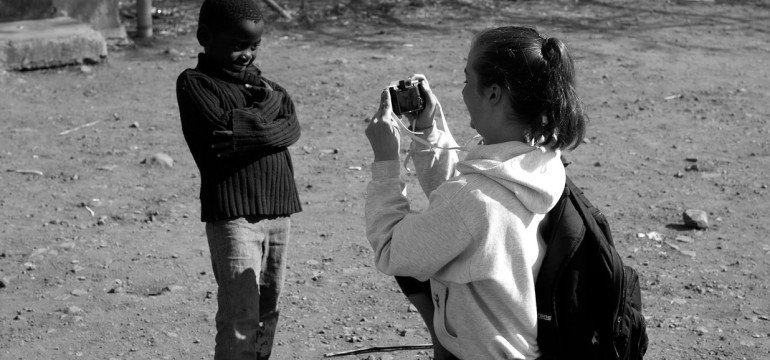
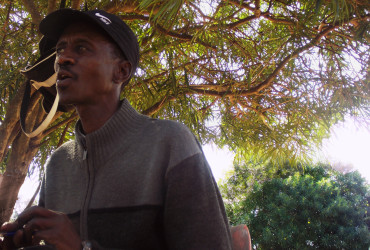
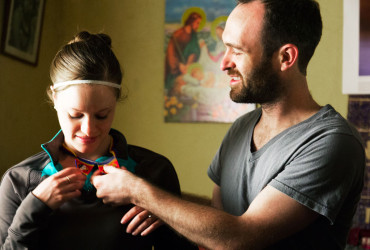
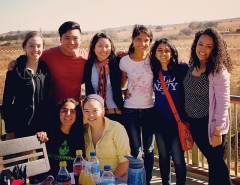
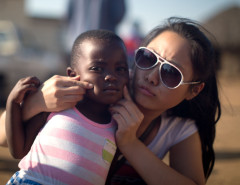
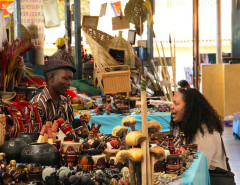
Leave a Reply